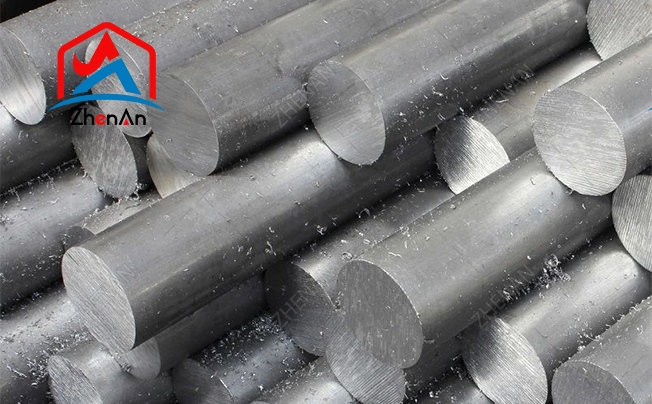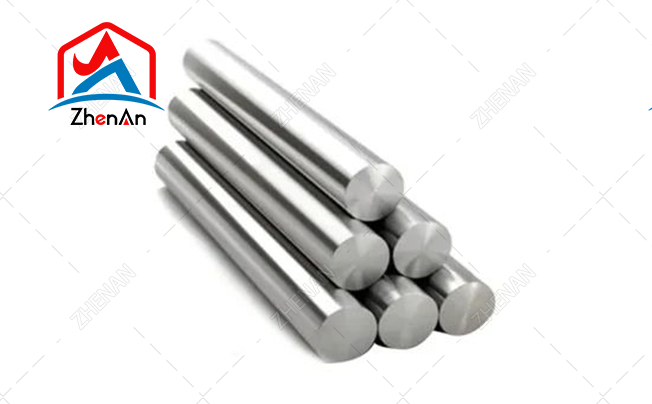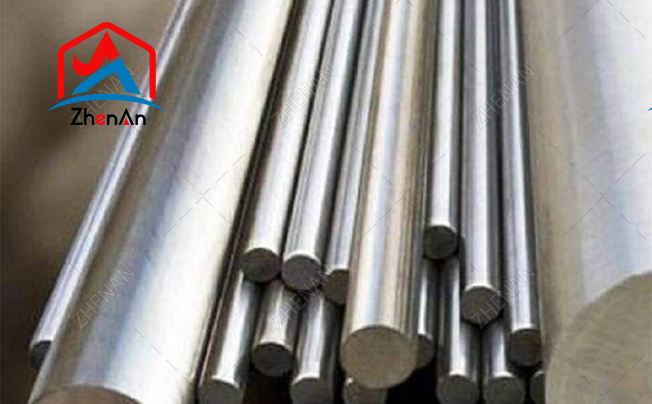Recent Product Posts





Molybdenum metal is a silvery-white, very hard transition metal, but softer and more ductile than tungsten. Its main features are durability, strength, corrosion resistance and high temperature resistance.
Molybdenum products
Description of molybdenum
Molybdenum metal is a silvery-white, very hard transition metal, but softer and more ductile than tungsten. Its main features are durability, strength, corrosion resistance and high temperature resistance. Molybdenum is a metal used as a raw material for alloys, especially wear-resistant steel. About two-thirds of this metal is used for this purpose, also known as inox, in amounts as high as 6%.
ZhenAn is a leading supplier of molybdenum products. We offer low prices and long lead times on all materials, and we are able to provide custom materials based on any specifications/drawings you provide us.
Molybdenum parameters
| Molybdenum Sheet | ||
| .003″ x 12″ x 36″ | .020″ x 12″ x 36″ | .060″ x 12″ x 36″ |
| .005″ x 12″ x 36″ | .025″ x 12″ x 36″ | .070″ x 12″ x 36″ |
| .010″ x 12″ x 36″ | .030″ x 12″ x 36″ | .090″ x 12″ x 36″ |
| .012″ x 12″ x 36″ | .040″ x 12″ x 36″ | .100″ x 12″ x 36″ |
| .015″ x 12″ x 36″ | .050″ x 12″ x 36″ | .125″ x 12″ x 36″ |
| Molybdenum Plate | ||
| .187″ x 12″ x 36″ | .500″ x 12″ x 36″ | 1″ x 12″ x 36″ |
| .250″ x 12″ x 36″ | .625″ x 12″ x 36″ | 1.25″ x 12″ x 36″ |
| .375″ x 12″ x 36″ | .750″ x 12″ x 36″ | |
| Molybdenum Rod & Molybdenum Bar | ||
| .060″ x diameter x r/l’s | .250″ x diameter x r/l’s | .875″ x diameter x r/l’s |
| .062″ x diameter x r/l’s | .3125″ x diameter x r/l’s | 1.00″ x diameter x r/l’s |
| .070″ x diameter x r/l’s | .375″ x diameter x r/l’s | 1.250″ x diameter x r/l’s |
| .080″ x diameter x r/l’s | .437″ x diameter x r/l’s | 1.500″ x diameter x r/l’s |
| .100″ x diameter x r/l’s | .500″ x diameter x r/l’s | 1.750″ x diameter x r/l’s |
| .125″ x diameter x r/l’s | .625″ x diameter x r/l’s | 2.000″ x diameter x r/l’s |
| .1875″ x diameter x r/l’s | .750″ x diameter x r/l’s | 2.250″ x diameter x r/l’s |
| Molybdenum Wire | ||
| .002″ diameter x coil | .006″ diameter x coil | .030″ diameter x coil |
| .003″ diameter x coil | .010″ diameter x coil | .035″ diameter x coil |
| .004″ diameter x coil | .020″ diameter x coil | .040″ diameter x coil |
| .005″ diameter x coil | .025″ diameter x coil | .050″ diameter x coil |
| Molybdenum Tube & TZM Tube | ||
| .125” od x .015” wall x 36” long | .312” od x .030” wall x 36” long | .750” od x .050” wall x 36” long |
| .188” od x .020” wall x 36” long | .375” od x .025” wall x 36” long | 1.00” od x .050” wall x 36” long |
| .250” od x .020” wall x 36” long | .500” od x .030” wall x 36” long | |
| Molybdenum Strip (Thickness) | ||
| 0.01-0.03 mm | 0.03-0.06 mm | 0.06-0.10 mm |
| 0.10-0.15 mm | ||
| Molybdenum Foil | ||
| .001” | .002” | .003” |
| .004” | .005” | .006” |
| .007” | .008” | .009” |
| Molybdenum Disc & Molybdenum Square | ||
| 7 ~ 100mm Diameter | 0.25 ~ 4.0mm Thickness | |
| Molybdenum Spraying Wire | ||
| 3.17 mm | 2.3 mm | |
| Molybdenum Lanthanum Wires (Mo-La wires) | ||
| 0.2mm-4.0mm Dia. x L | ||
| Molybdenum Heating Elements (Diameter) | ||
| 3.0 mm | 4.0 mm | 5.0 mm |
| 6.0 mm | 7.0 mm | 8.0 mm |
| 9.0 mm | ||
| Molybdenum Boat | ||
| 0.3-30mm T | 10-500mm W | 50-1000mm L |
| Molybdenum Crucible (Capacity) | ||
| 1000 ml | 100 ml | 10 ml |
| 15 ml | 20 ml | 25 ml |
| 35 ml | 45 ml | 55 ml |
| 5 ml | 75 ml | |
| Molybdenum Electrode | ||
| (14-20)×(14-20)×L, L < 500 mm | (3 – 25)×(50 -500)×L, L < 800 mm | (f20 – f100)×L mm |
| Molybdenum Tray | ||
| Molybdenum (Mo) Mandrel | ||
| Molybdenum Trioxide (MoO3) | ||
| -325mesh | -100mesh | -200mesh |
| Molybdenum Metal Powder (Particle size) | ||
| 2 – 3μm | 50nm | |
| Molybdenum Powder for Thermal Spraying | ||
| -75 +38 µm | -75 +30 µm | -45 +16 µm |
| Molybdenum Disulfide (MoS2) | ||
| 1.0-1.5 μm | ||
| Mo-La Alloy (Molybdenum Lanthanum Alloy) | ||
| TZM Alloy (TZM Molybdenum) | ||
| Molybdenum Niobium Alloy Ingots (Mo-Nb Alloy) | ||
| Ion Implantation Components (TZM Alloy) | ||
| Molybdenum Fastener | ||
| Molybdenum Heat Shield | ||
| Molybdenum Spinning Nozzle | ||
| Ion Implantation Components (Molybdenum) | ||
* Specific lengths and sizes available upon request.
Applications Of Molybdenum
Filaments
Contacts
Heat Shields
Jet Tabs
Rocket Nozzles
Brazing Fixtures
Boring Bars
Tools
Missile Parts
FAQ
A list of Frequently Asked Questions (FAQs) is provided below to answer the most common questions. If after viewing this page you need a more specific answer or your question is not covered, please feel free to email us for further assistance.
Q – What are refractory metals?
A – Refractory metals have one common characteristic: extremely high melting points. For example, tungsten has a melting temperature of 3410°C (6170°F), more than twice that of iron and more than ten times that of lead. As a group, they appear in a section of the periodic table of elements.
Q – What are the important properties of these metals?
A – Table 1 Comparison of the mechanical and physical properties of refractory metals with those of other common metals. Strength values for the metals in Table 1 are given in ranges because the strength of these metals can vary greatly depending on shape and processing.
Strength is not the only factor that changes depending on the processing method. Alloying or combining metals into composite materials can often provide properties that are in some way superior to those inherent in the base metal itself. Therefore, although there are only five major refractory metals, they are the main components of dozens of important metals and alloys.
* We value your feedback! Please complete the form below so that we can tailor our services to your specific needs.